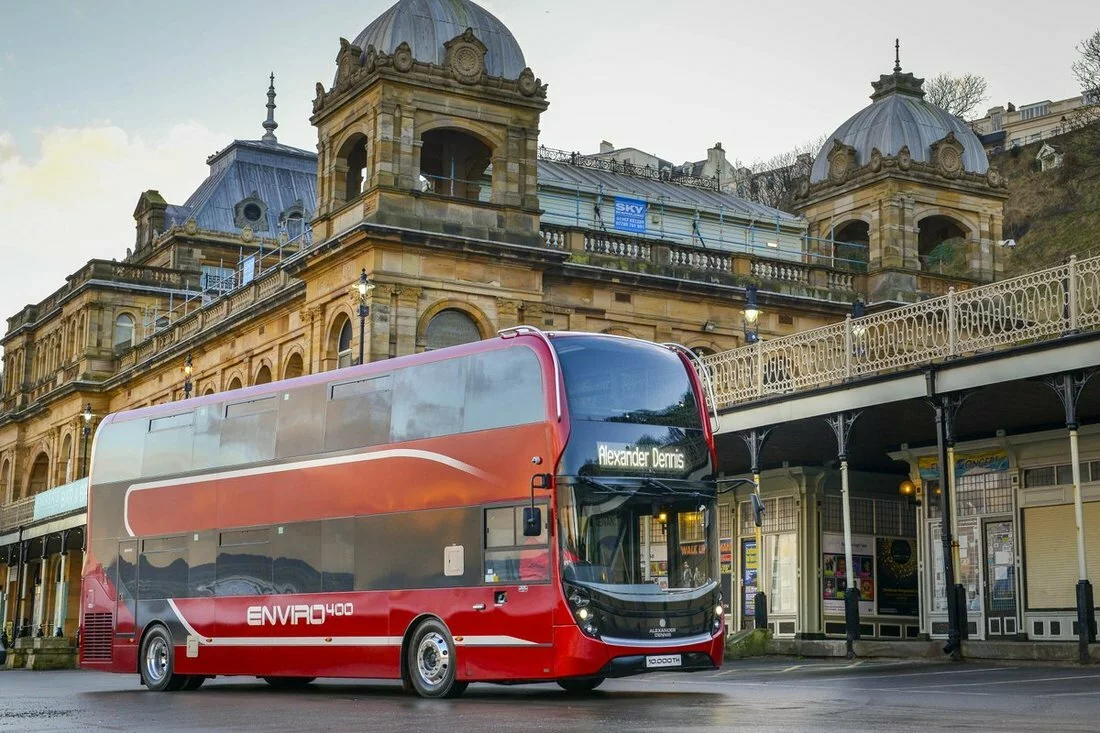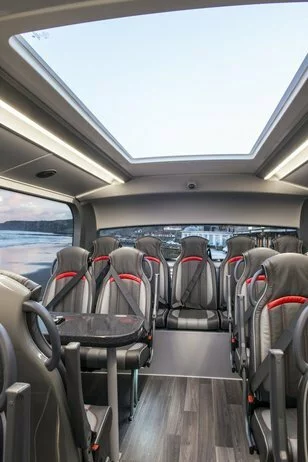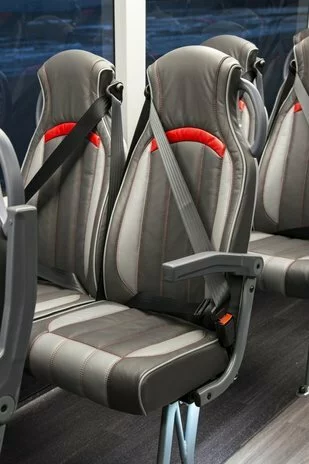- Home Page
- Fleet News Ramblings
- SKM News Views & Blog
- Behind The Picture
- Contact us
Why I will now steer clear of charter trains19/12/2017
And so to York a few weeks ago, along with Mrs K. We travelled on many rail tours during the 1990s during my time with RAIL magazine, but this was the first one we have been on for a good many years. Steam-hauled to York with Union of South Africa and Royal Scot was a real attraction.
With almost three and a half hours advertised in York it was a good opportunity to visit the Christmas Market there and have a look around. We were aware the train had left Norwich late, which we were told was due to operational problems affecting several trains from the Norfolk station but at Peterborough the information screens proclaimed the train was ‘on time’. At the departure time of 10:49 the screens still said ‘on time’ but there was no train – in reality is was several miles away at March. Then came a nightmare for East Coast controllers. A Hull Trains Class 180 from London to Hull was in trouble just north of Helpston level crossing. The station announcement said that all lines were blocked and trains would be held at Peterborough due to an incident on a train. Later investigations revealed that what was described as a catastrophic engine failure had ruptured a fuel tank on the train and emergency services were in attendance. It was therefore interesting to hear the train manager on the charter tell passengers the delay was due to a fire on a freight train. Wrong on two counts fire and freight!. We took this up with the charter operator who said that “Our train manager will only pass information on to passengers that has been provided to him by Network Rail. I can not comment on whether that information was correct/incorrect”. I would be interesting to know what message was passed from Network Rail - I bet freight and fire were not included in it. We departed Peterborough an hour late and lost further time – maximum speed was 75mph with steam haulage – as we had to give priority to other scheduled East Coast services. This was expected as charter trains are times in marginal ‘white space’ train paths. After leaving the Newark we were informed that Network Rail had refused to re-time the return trip to a later time. This is in my view not surprising as it would take a substantial time to recover from the late running that was now affecting the whole of the East Coast route. It was, therefore, somewhat unfortunate that the train manager on the charter chose to be highly critical of Network Rail over the train’s PA saying how Network Rail see charter trains as being at the bottom of the pile. I accepted the tour operators conditions when booking but wanted to know what recourse to compensation they have for delays – even through passengers accept they have no recourse to compensation when booking. The tour operator said: “There were delays on the day…… these were beyond our control and the reasons for these were explained to everybody on board via our train manager’s announcements and/or our stewards walking through the carriages. When delays are experienced there is no compensation to ourselves as we are bound to accept these within our contract with Network Rail/West Coast Railways. Our private charter services do not take priority over service train traffic, for obvious reasons.” I understand that charter train operators do operate under a version of the Section 8 performance regime with Network Rail. The return journey was a little uncomfortable as the coach we were in was extremely cold. We were told that is because of the vagaries of steam heating which means that at times heat does not reach the whole of the train. I don’t buy that as the coaches either side had heat. The tour operator again responded: “Since the trip ran we have been made aware of the heating issue in coach E by our operator, West Coast Railways. We are very sorry for this. Usually on our Winter trains we have a diesel attached which, if the steam locomotive is not generating sufficient heat, helps out and the carriages are plenty warm enough. We did request this for our train on 7th December, unfortunately on this occasion there was no diesel locomotive made available to us and the steam locomotive did struggle to get heat through to all of the carriages. I should say that do state in our terms and conditions that for trips taken during the Winter months customers should take extra items of warm clothing with them in case the need arises for this. West Coast Railways have of course looked into the cause of this and the issue has now been rectified.” So the cold coach was due to a defect and in my view nothing to do with the steam locomotive struggling to get heat through to the whole train. Then as we pulled into Eastfield Yard, Peterborough on the return to change from steam to diesel traction a classic on train announcement. Passengers were invited to look out of the window to see the Hull Trains train that had been on fire passengers were further told that they could see it still smouldering. That was a real surprise and concern. A smouldering train with no sign of emergency services around it! A smouldering train and a passenger train put on a line alongside! Professionalism was something that was thin on the ground during this trip. Virgin Trains Azuma takes the Highland Line18/12/2017 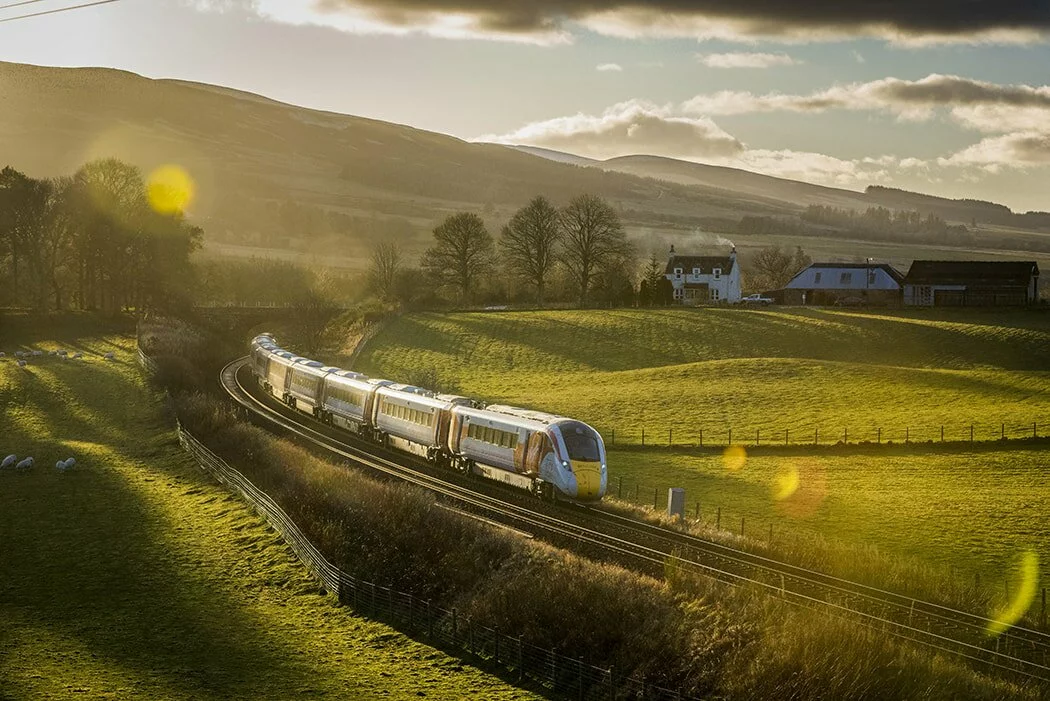 Virgin Trains Virgin Trains
Virgin’s state-of-the-art Azuma train made its inaugural visit to the Highlands last weekend as preparations to transform cross-border rail services gather pace.
The iconic train, which takes its name from the Japanese word for “east”, will be rolled out on Virgin Trains’ east coast from next year, ushering in a new era of comfort and style for rail passengers. It passed through some of the most iconic scenery on the UK rail network as it journeyed north of Edinburgh to Inverness on Friday afternoon for the first time, before travelling back to a depot in Doncaster in the early hours of Saturday morning. The test run by manufacturer Hitachi is part of a programme to prepare Scotland for the 65-strong Azuma fleet. The first of these will enter service in December 2018 as part of a two-year rollout programme, with Azuma services due to operate from five of Scotland’s seven cities from 2019. ADL celebrates 10,000th low floor double deck in style…13/12/2017 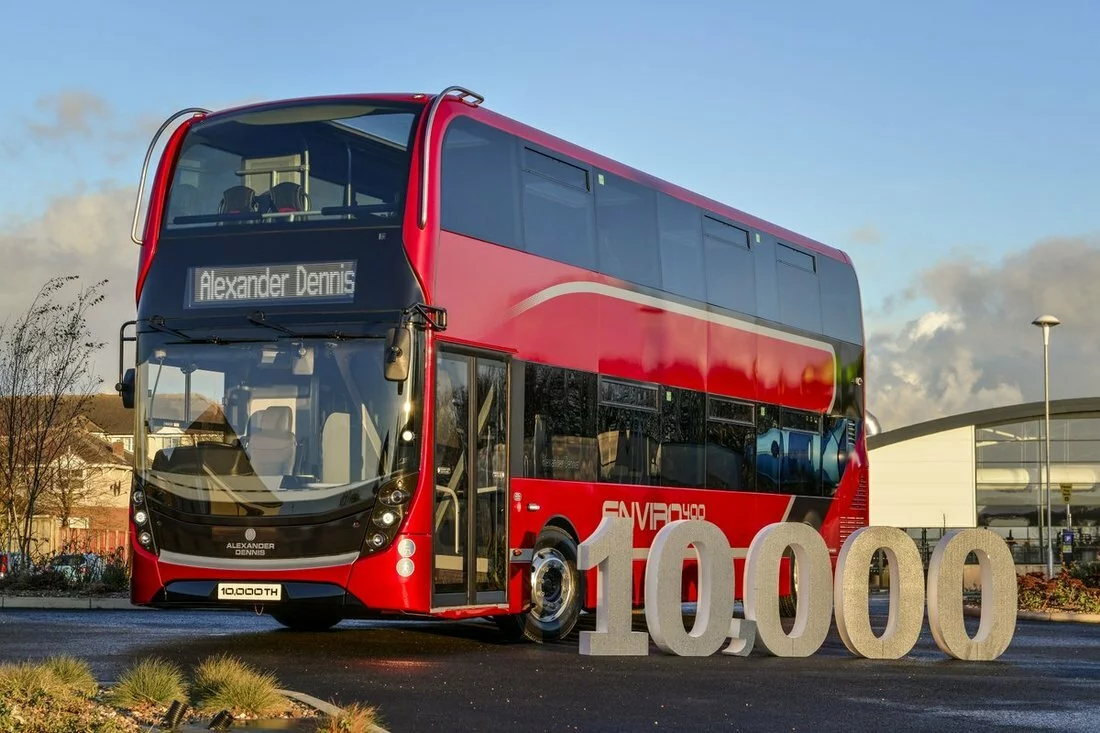 Images from ADL Images from ADL
When it comes to demonstration buses Alexander Dennis Limited (ADL) does it in style. And the latest vehicle will not disappoint.
The latest demonstrator really does have the Wow! factor and just happens to be the 10,000th two-axle, low floor double deck bus from the company. And what is more its in a stunning red livery. ADL has influenced the progressive shift by the UK bus industry to high quality, low floor, easy access buses over the last two decades. The 78-seat executive Enviro400MMC will join ADL’s demonstration fleet as the company continues to promote high specification double decks as an attractive option for premium services. It comes complete with leather seats, wood effect flooring, seat belts, Wi-Fi, USB charging points, mobile phone holders, skylight roof panels as well as next-stop audio and visual announcement systems. The high specification options of the Enviro400, which have a proven track record of driving patronage growth on scheduled services, have broadened the type’s appeal beyond traditional bus work. Several operatoprs have already signed up to take the vehicle on loan, so look out for it around the country. So, over to ADL to take up the story… Colin Robertson, ADL’s Chief Executive, commented: “There is a trend towards high quality buses that combine capacity and comfort. They raise the bar and are helping operators win business, particularly in terms of private hires, special events, corporate work and even school contracts.” It is a niche market ADL has created in the past two years with impressive business wins involving companies such as Go Goodwins, Hams Travel, Imperial Coaches, Skills Coaches, Swans Travel, Weavaway, Westway Coaches and Wheelers Travel. Colin Robertson: “This trend is a far cry from two decades ago when buses were fairly down-to-earth, no frills vehicles and it is fitting that we celebrate this 10,000 landmark with a double deck that demonstrates the huge strides we have made in taking product options to a whole new level.” The milestone number of 10,000 two-axle, low floor double deck buses not only includes the current and previous Enviro400 models but also their trendsetting predecessor which brought low floor technology to the mainstream of UK bus operation. The Dennis Trident 2 chassis was launched in 1997 and, along with the Dart SLF (Super Low Floor) midi bus, sparked a revolution in the UK bus industry. Their focus on easy access not only made public transport available to wheelchair users and passengers with reduced mobility who had previously found high-step entrances prohibitive but vastly improved accessibility for parents travelling with children in pushchairs. In 2005 ADL took double deck technology to another new level, launching the Enviro400, an integrally designed complete vehicle providing a one-stop solution for operators. It was an immediate success and has subsequently been the UK’s best-selling bus for more than a decade. Colin Robertson commented: “This 10,000th low floor double deck bus is a milestone for everyone at ADL. The extraordinary success of our Enviro400 is a reflection of the ingenuity, commitment and dedication of teams drawn from right across our business. No one ‘wins the league’ this consistently without having the right people and the right approach to delight customers. “We have had many landmark moments with the Enviro400, from the launch in 2005 to the facelift in 2009, the major model change in 2014 and the introduction of the City version in October 2015. We have also seen it lead the way as a fuel-efficient, low emission diesel, as a diesel-electric hybrid and as a gas bus. “While it was designed as an integral vehicle – and has enjoyed the vast majority of its success as such - we have also bodied it on Volvo and Scania chassis. In addition, although it was mainly intended for the UK market, we have had significant business wins with the Enviro400 in Hong Kong and New York.” Colin Robertson added: “The overriding fact is that the success of vehicles like this help us support apprenticeships, career development opportunities, 2,500 jobs across ADL, 1,500 more in our various collaborative ventures, and a further 5,000 in our supply chain network. It also gives us the impetus to stay at the forefront of technology and maintain our world-leading position in the bus and coach manufacturing sector.” Railway Round-Up December 4th 20174/12/2017
Welcome tour an ad-hoc review of what's happening on the railways, produced from information we receive. We hope that you will find the information of interest.
East Coast franchise to be re-let early The Government has announced that the East Coast rail franchise, currently operated by Stagecoach and Virgin, is to be re-let under a new model franchise. The plan is to package track and trains under one brand. The proposal is based on the ‘Alliance’ model currently operated in Scotland. The joint operation is also being planned for the new South Eastern franchise, for which the Invitation to Tender was published last month. Stagecoach and Virgin secured the East Coast Main Line operation in March 2015 in a franchise which was due to run until 2023. However, the operator has been in discussions with the DfT due to its business plan being compromised by delays infrastructure upgrades on the route. A new deal for could be running trains on the route, through a track and trains partnership, could be in place from 2020. Great Western to be split The Government’s recently announced plans for rail franchising includes splitting up the Great Western Railway franchise. The regional operations in the South West would be split off. Second HST for Scotland The second HST set being transferred from Great Western to ScotRail has been transferred. ScotRail plans to start HST services, initially on the Edinburgh-Aberdeen route, from May next year. RMT calls strikes at Virgin West Coast Rail Union RMT has called a series of strikes at Virgin Trains West Coast over a pay claim. The RMT is demanding a suitable equal offer for its members to that received by drivers. Virgin Trains says it expects to operate the majority of services on strike days that have been announced on December 15th and 22nd and January 5th, 8th, 26th and 29th. In a separate dispute, the RMT is balloting its members at Virgin Trains East Coast over changes to sick pay arrangements. CrossCountry strikes continue Train Managers and Senior Conductors at CrossCountry, who are members of rail union RMT, have staged to strikes on Sundays over what the union claims are abuses of rostering and Sunday working. Steven Knight Media understands that Sunday working is voluntary and not enough are volunteering to work to enable a full service to be provided. The RMT has already called stoppages on November 19th and 26th with others planned for December 9th and 10th, 24th and 31st. East Midlands Trains to get more HSTs Three HST sets from Grand Central Trains are due to transfer to East Midlands Trains next year. Once in service they will allow the re-deployment of Class 222 Meridians and Class 158s. |
Steven KnightSteven Knight is a Transport Specialist who has over 40 years experience in the bus and rail industries as well as in specialist transport journalism. He is a member of the Chartered Institute of Journalists. ArchivesJanuary 2021 |
 Create your own unique website with customizable templates.
Create your own unique website with customizable templates.
- Home Page
- Fleet News Ramblings
- SKM News Views & Blog
- Behind The Picture
- Contact us

